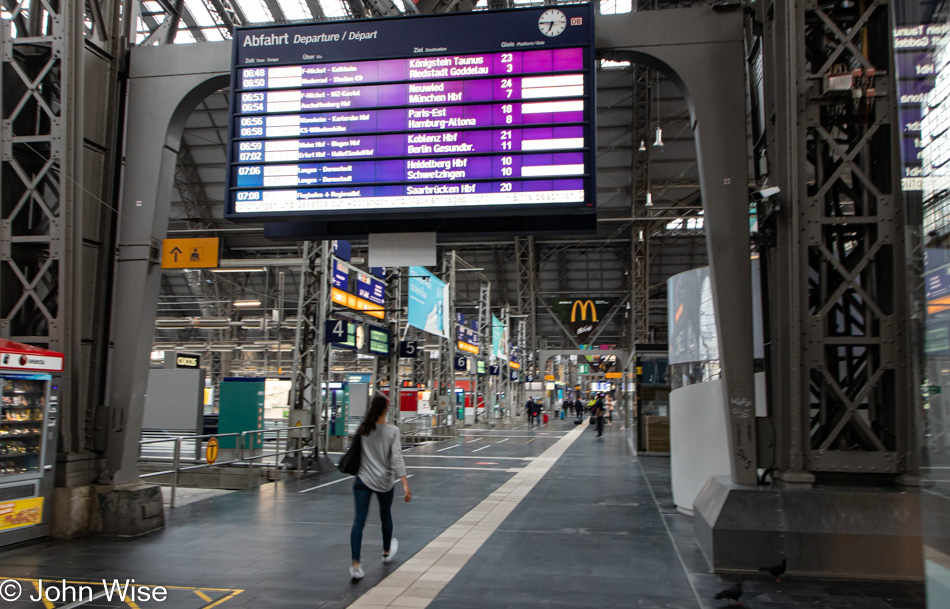
I’m up early for the train to Paris. Sadly, I get off in Mannheim, where I’ll transfer to Worms. Not so sad really, as Worms is my first chosen destination. I’m visiting history. Tomorrow’s final train in Germany will be the one that will begin my return to the United States.
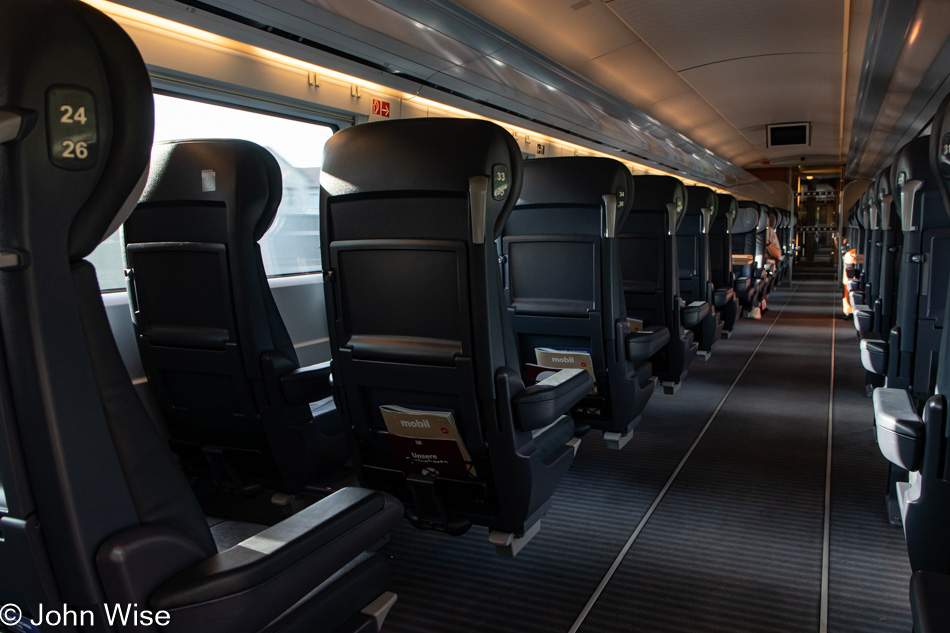
I can’t emphasize enough how much I love 1st class rail travel. If I never had to fly again, I could be perfectly content on long hauls via train. After not driving a car for five weeks, it will be strange to get behind the wheel again, but that’s not for another day yet.
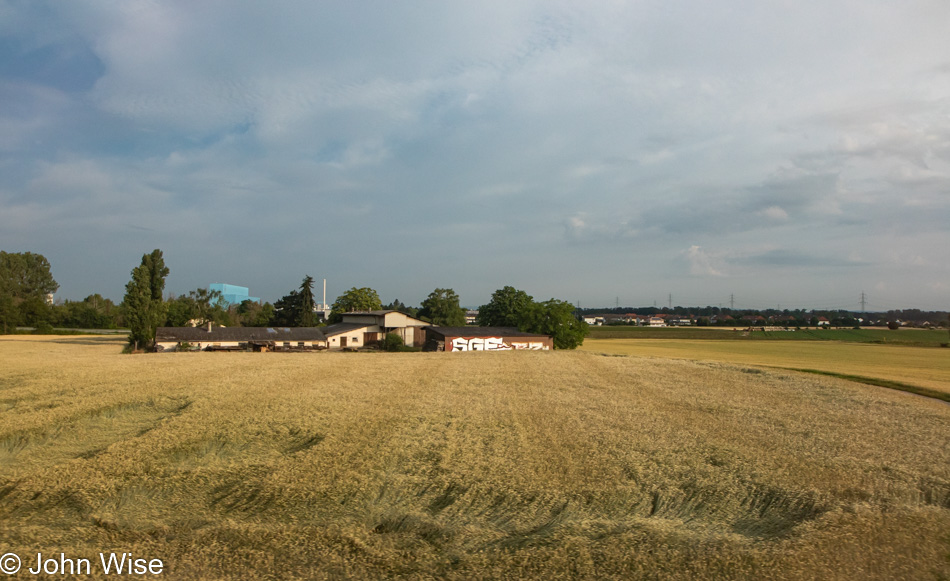
My redundancy is in full effect by now. How much can I say about the many fields of wheat we are passing? A couple of years ago, when I was here in early April, there were fields of rape outside my window.
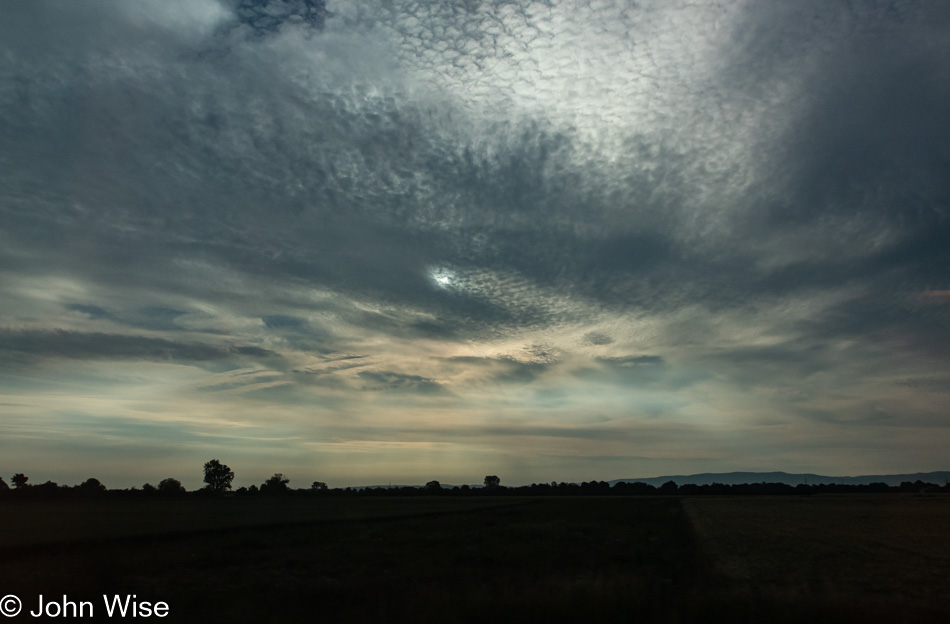
I love a dramatic sky, even if it means bloating a blog entry with too many photos. While the anonymous reader will wonder why the author has shared so many, you should be aware that I’m not trying to entice others to visit these places or resonate with the same things I find beautiful or relevant; I post all of this for two people, my wife and myself.
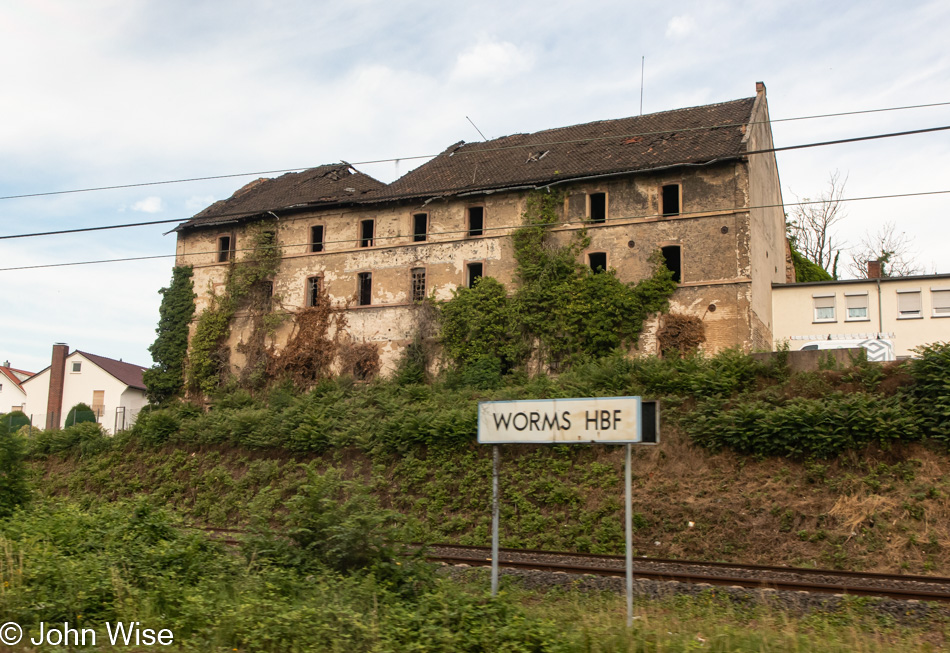
Worms, but not what you think. This relatively small city 50 miles south of Frankfurt plays a large role in German history as the location of much of the “action” in the Nibelungenlied, a medieval epic poem, and the beginning of the Reformation five hundred years ago in 1521. I feel fortunate to be here during the 500th anniversary of such an important event.
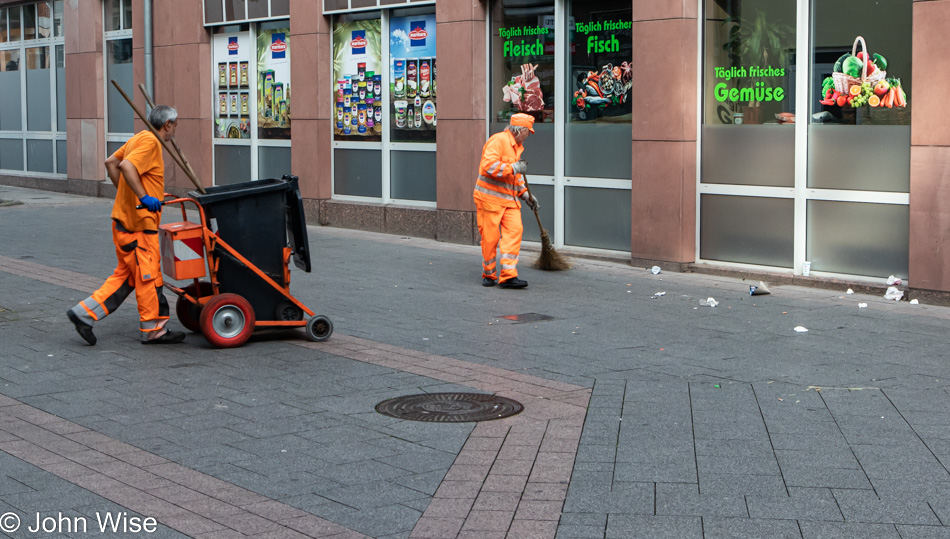
I’ve mentioned these cleaners in another post during my stay in Germany. I can only imagine how different American cities might be if people were given jobs such as these and all of our places of commerce were kept neat and clean (and mostly without the use of leaf blowers).
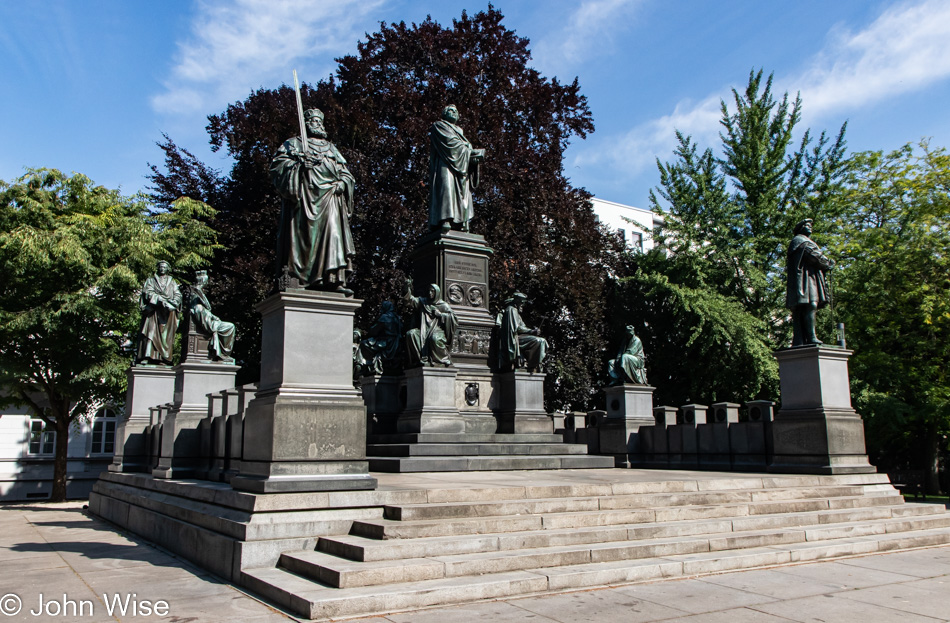
It was the Edict of Worms that opened the schism by banning people from sharing Martin Luther’s ideas. While the 95 Theses he had posted to a church door in 1517 started the world on the pathway to the Reformation, it was the Diet of Worms and their Edict that Martin Luther was “a notorious heretic” that really started the dramatic historical changes that would follow the Reformation.
This is an incredibly important inflection point in Western history that disrupted European power and laid the groundwork for dissolving empires, shifting religious adherences and led to a number of wars, the worst lasting 30 years.
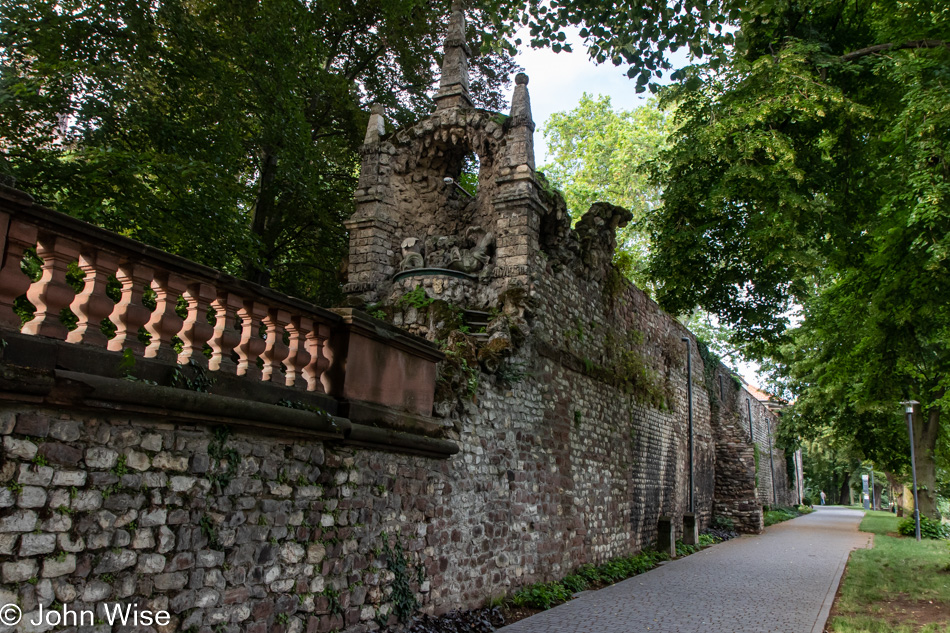
First, the city walls were mostly destroyed by the 30 Years War, and then in 1689, during the Nine Years War, the city was sacked, producing more destruction. and finally, during World War II, about 40 percent of the city was damaged by Allied bombing. My point is that the building that served as the assembly hall for the Diet appears destroyed to the best of my quick research.
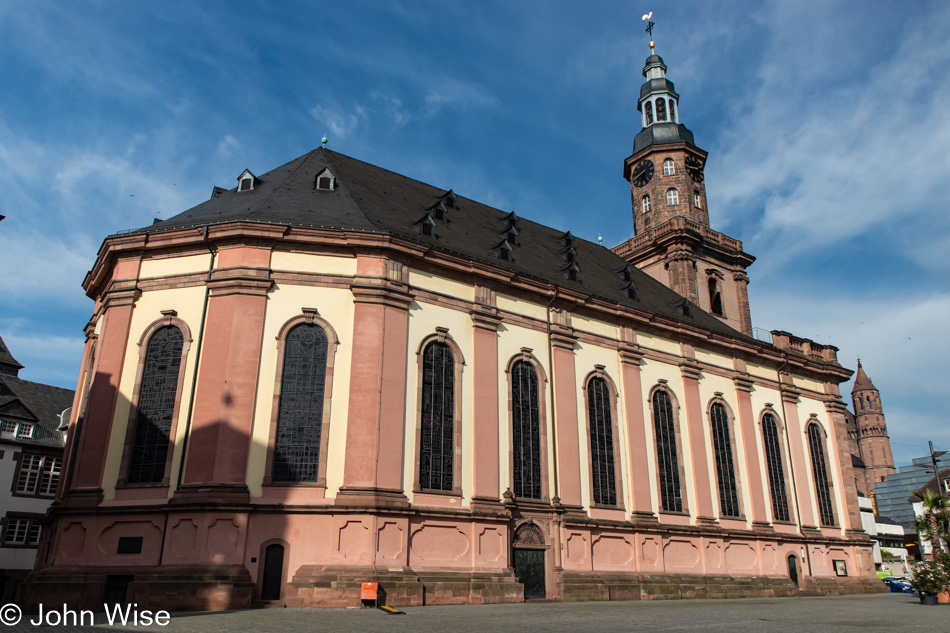
This is the Holy Trinity Church, which I’ll visit on my way back into town. During World War II, most of this church was destroyed, but more on that later. First, I have a date with an event that goes back to the beginning of the 13th century.
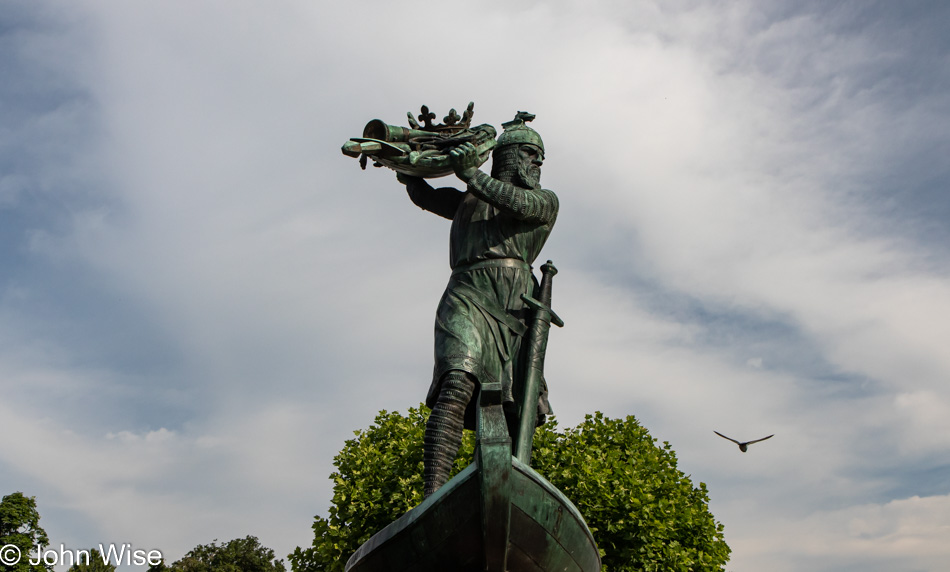
Now we arrive at the Nibelungen. This is Germany’s epic poem of heroism and is considered their Iliad. It was supposedly here on the bank of the Rhein River that Hagen of Tronje, after slaying the hero Siegfried, threw the Nibelungenhort, Siegfried’s treasure, into the drink. This, combined with my familiarity with Richard Wagner’s Ring of the Nibelungen, has finally created enough interest for me to ask Caroline to find The Song of the Nibelungs, its English title, to join our list of books read in the car.
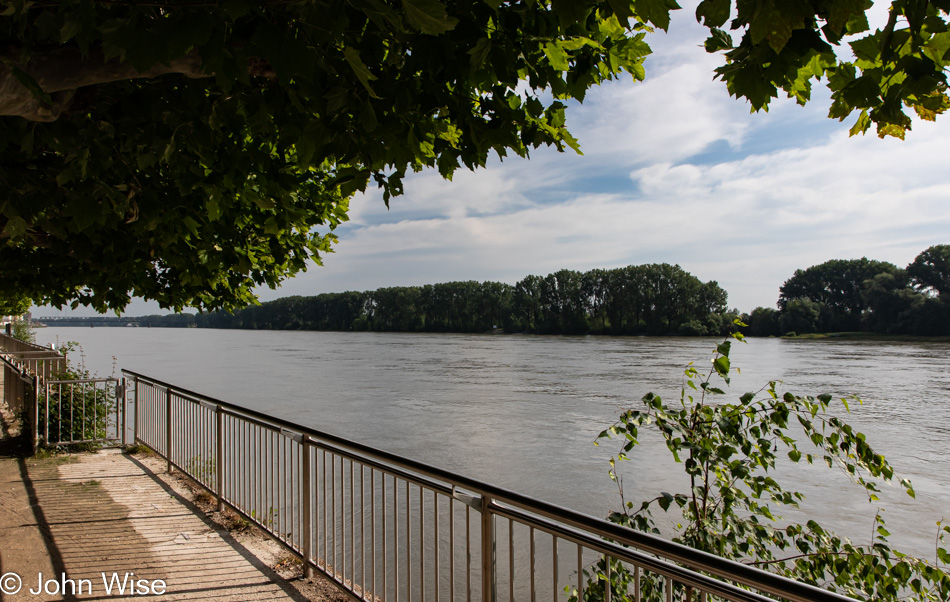
The poem has been dated to approximately 1205 while the opera was first performed in Bayreuth on August 13, 1876. Of course, this is all just information found on Wikipedia, but as I stood here at the Rhein, I did try to imagine that day 800 years ago or more when the raiding party led by Hagen saw the evil in wealth tossed everything in the river. If this even happened in the past 1100 years, then the cathedral was already part of town, and other than all the new buildings, metal railing, and the bridge over the river, I’d imagine that things look much the same. Even so, who knows where Hagen stood precisely during all this? Plus, maybe the river has moved its banks a few times since then; there were probably docks here and there and people fishing from shore and from boats out in the river.
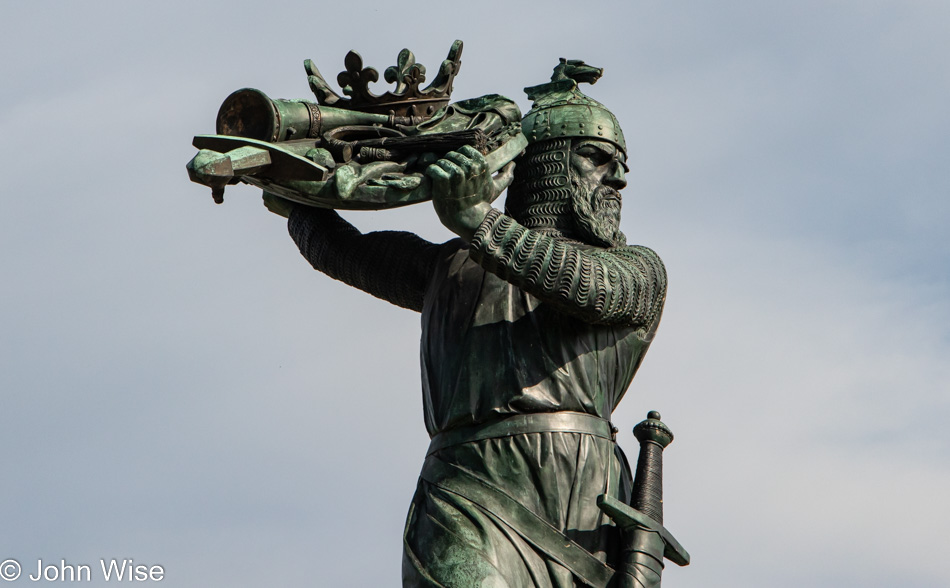
The bells that I’m listening to from the cathedral calling people to church (it is Sunday, after all) would have been the loudest things ever heard by the people of that time. As for recovering the silver and gold that got tossed, who would have had the swimming skills back then to dive into the river to scour the bottom, hoping to find something valuable? Even Wagner’s The Ring of the Nibelungen is unknown to me, not the music, of course, but the lyrical content is in German, and I’ve never taken the time to read it. This really is my loss, as here I am at ground zero of this epic tale and opera and I have more blanks than relevant info. Sometimes, I’m a sad sack.
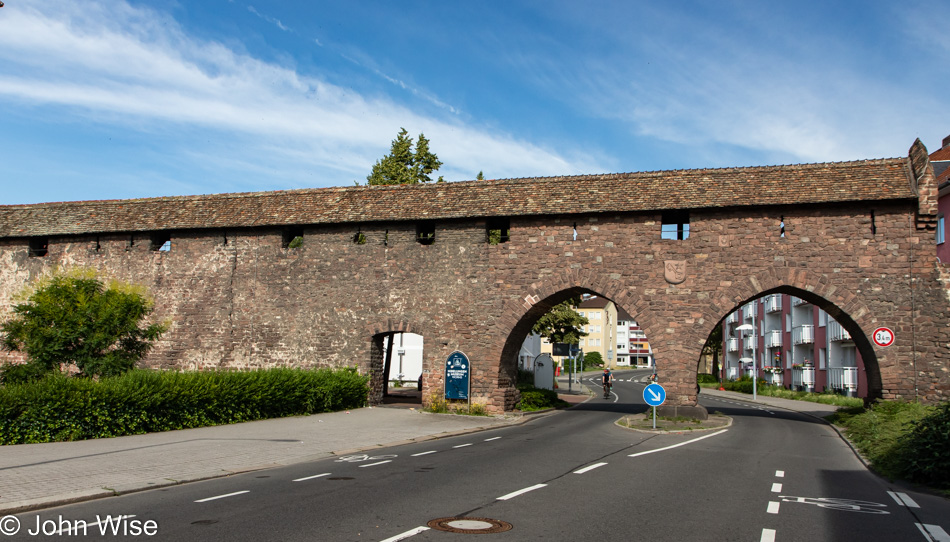
Is this a stretch of surviving town wall, a reconstruction, or a tourist attraction, as there’s a sign nearby directing people to visit the Nibelungen museum? I can’t afford that luxury as I have 2.5 hours in town, and that’s barely enough for much at all.
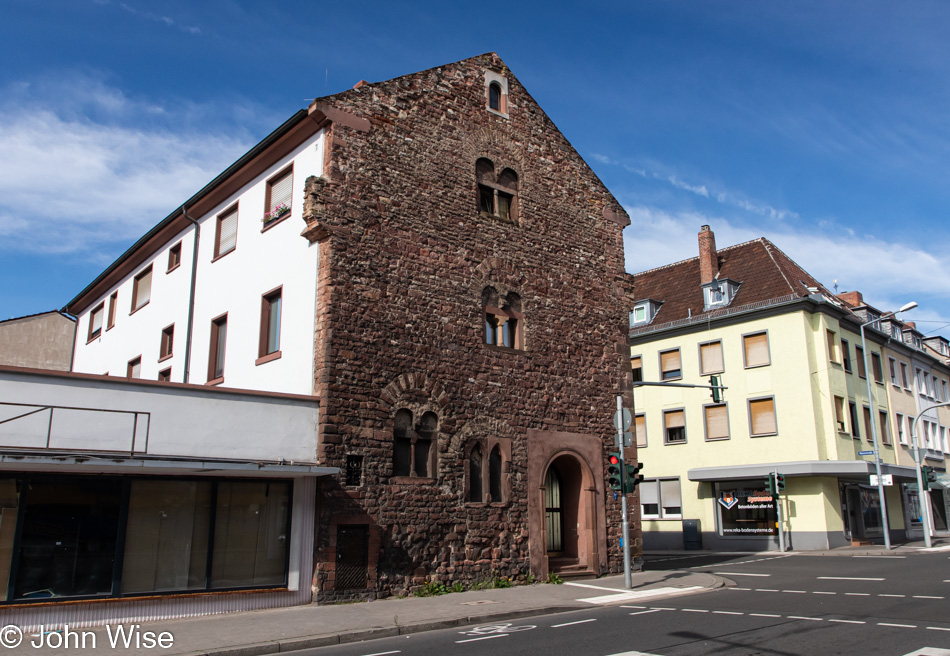
I do appreciate this effort in Germany: a historical facade still exists, but the rest of the building needs to be cleared away, so they preserve what they can and conform the new house to the features of the old building, at least on the side deemed salvageable.
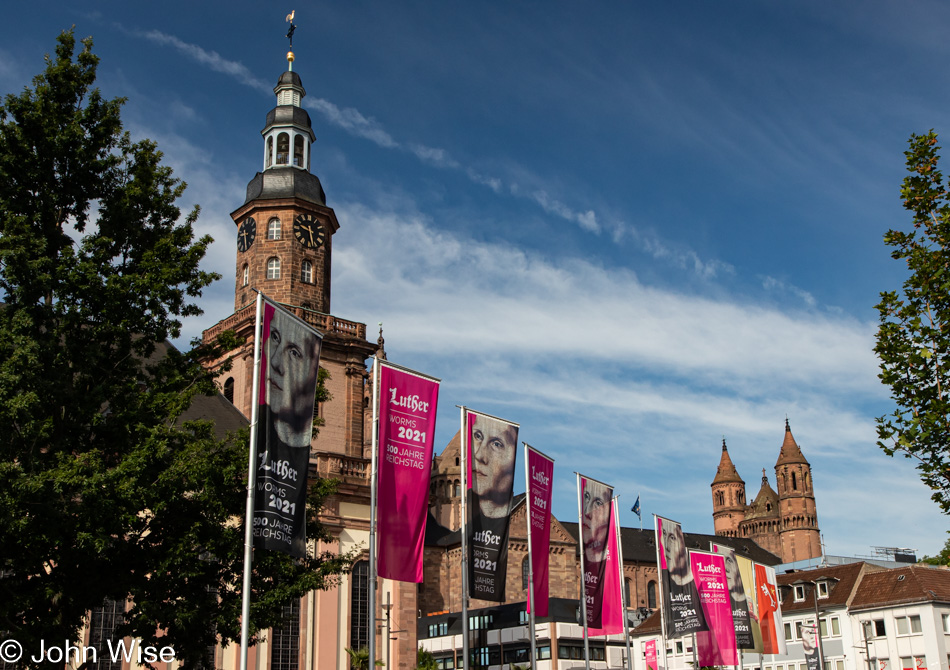
Protestantism from the word protestation came into being following the edict issued by the Diet of Speyer in 1529 due to the protestations of a number of German Lutheran princes. Today, Protestantism encompasses many churches beyond Lutheranism but both ideas emerged out of the words and actions of Martin Luther. Catholicism would never be the same after this.
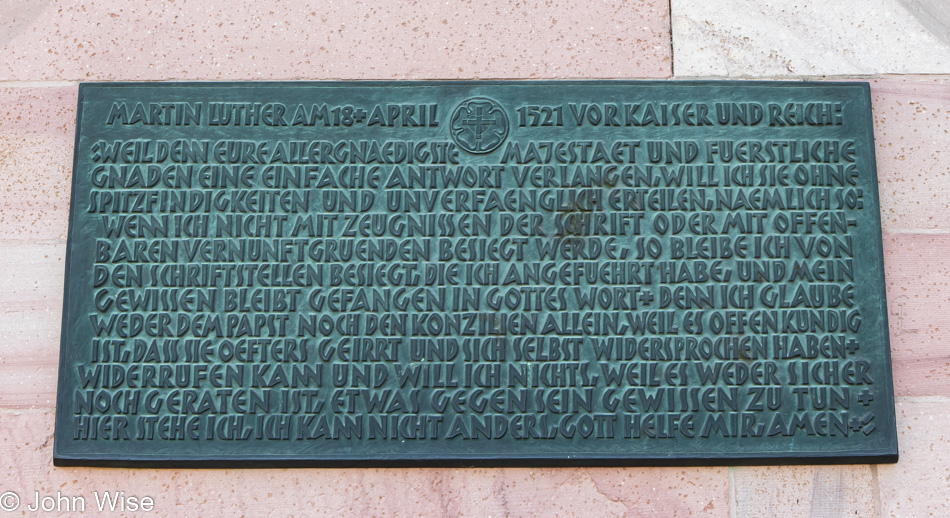
Martin Luther, before emperor and realm on 18 April 1521: Since your most serene majesty and your high princes require of me a simple answer, I will give a straightforward one without quibbles thus: If I am not convinced by scripture or by clear reasoning, I am still bested by the passages that I have quoted and my conscience remains imprisoned in God’s word. I cannot trust the pope or the council because it has been shown that they have erred before and contradicted themselves. I cannot recant, nor will I retract anything, because it is not safe nor wise to act against one’s conscience. Here I stand; I cannot do otherwise. God help me, Amen.
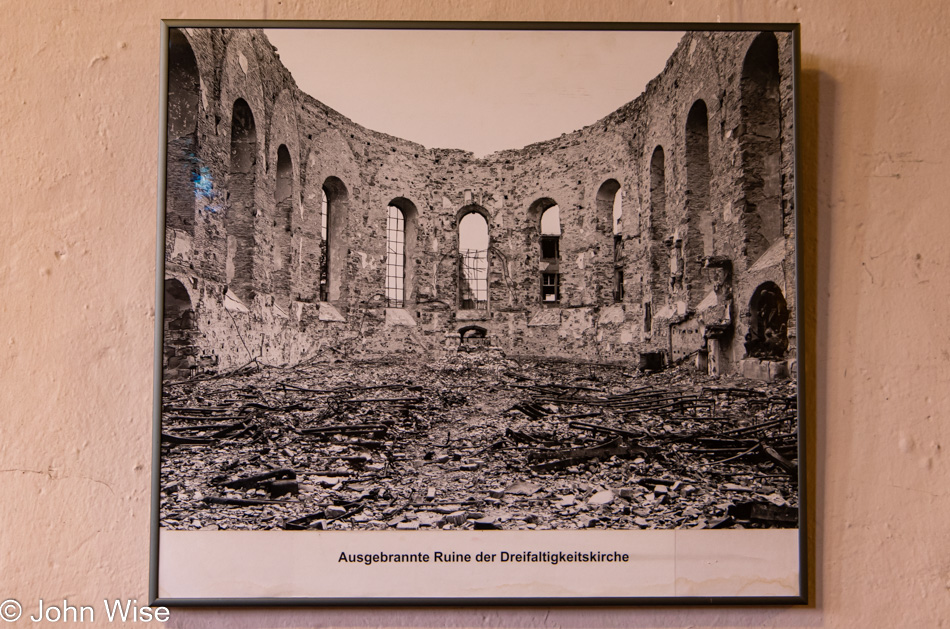
Fire destroyed the Holy Trinity Church after the city of Worms was bombed during World War II. The original church was built between 1709 and 1725 on the site of the Haus zur Münze (House of Coinage) that had been destroyed in the aforementioned Nine-Years-War. It is said that the site was chosen for the church because the citizens of Worms believed that it was here that Martin Luther spoke with the King in 1521 as Luther was becoming a public enemy.
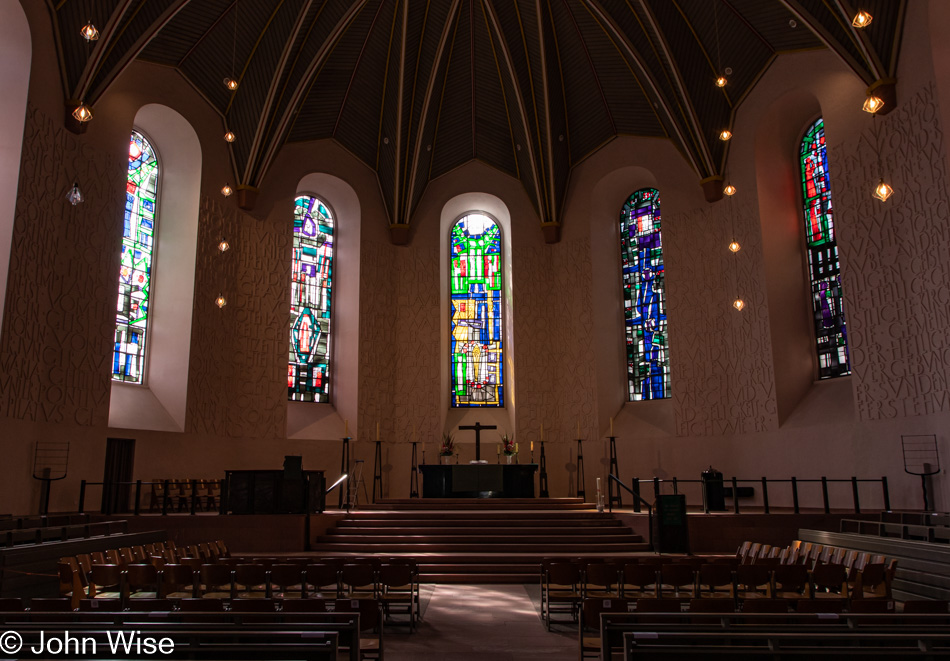
The church was modernized when it was rebuilt, as it was a near-total loss and if I understood the man I was talking with, it’s used frequently for concerts.
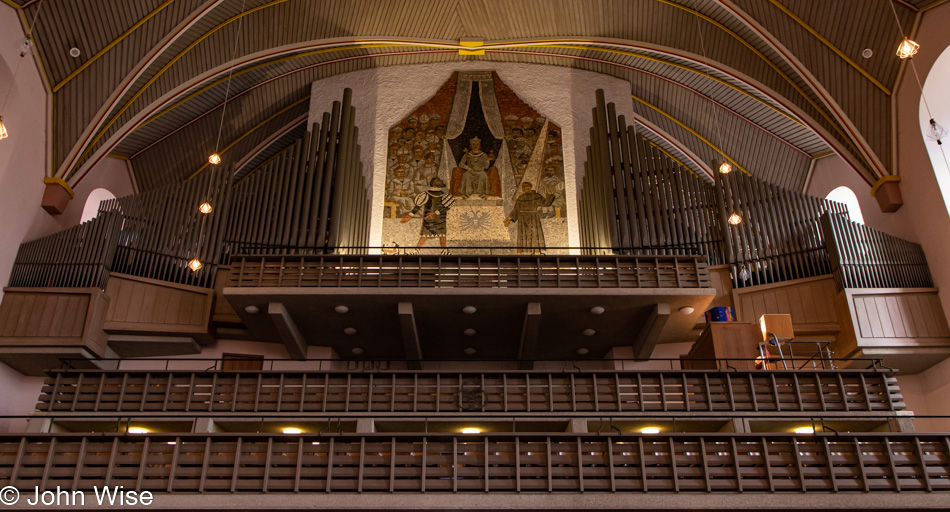
The mosaic in the background features the King top center, Martin Luther on the right, and his aide on the left. The first big reason for Caroline and me to return is to attend a concert here.
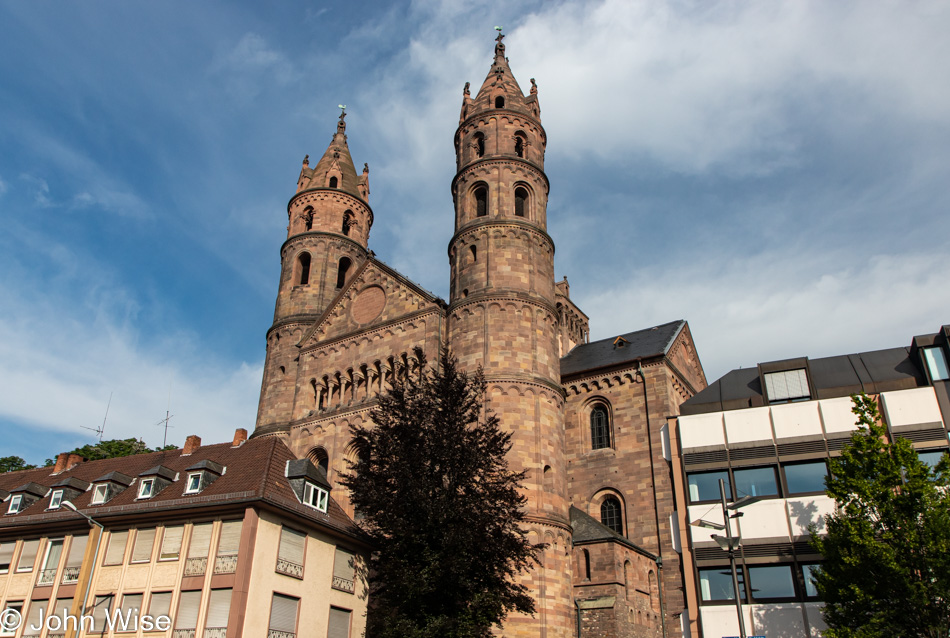
The second big reason to come back is for Caroline to hear the bells clang on a Sunday morning.
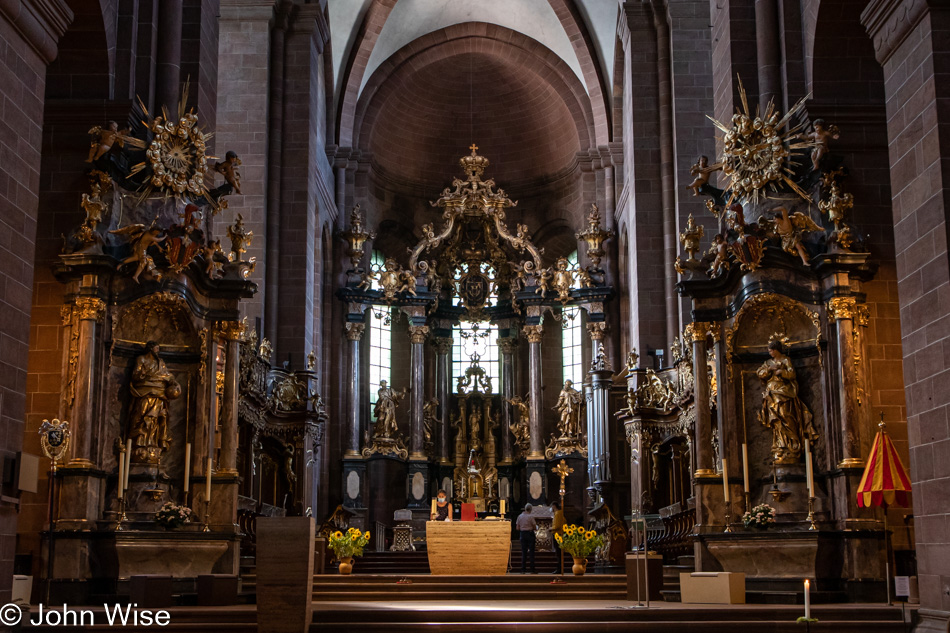
Leave it to the Catholics to know how to put on a show of glitz and ornamentation. Services were about to get underway when I shot this photo; the guy at the door informed me that parishioners were already signing up for today’s sermon (a measure brought on by COVID). Pleading that I only had two hours in Worms, I asked for 3 minutes, and he let me have them.

A sprint past all of this was sad, but at least I have some idea of the grandeur of St. Peter’s Cathedral.
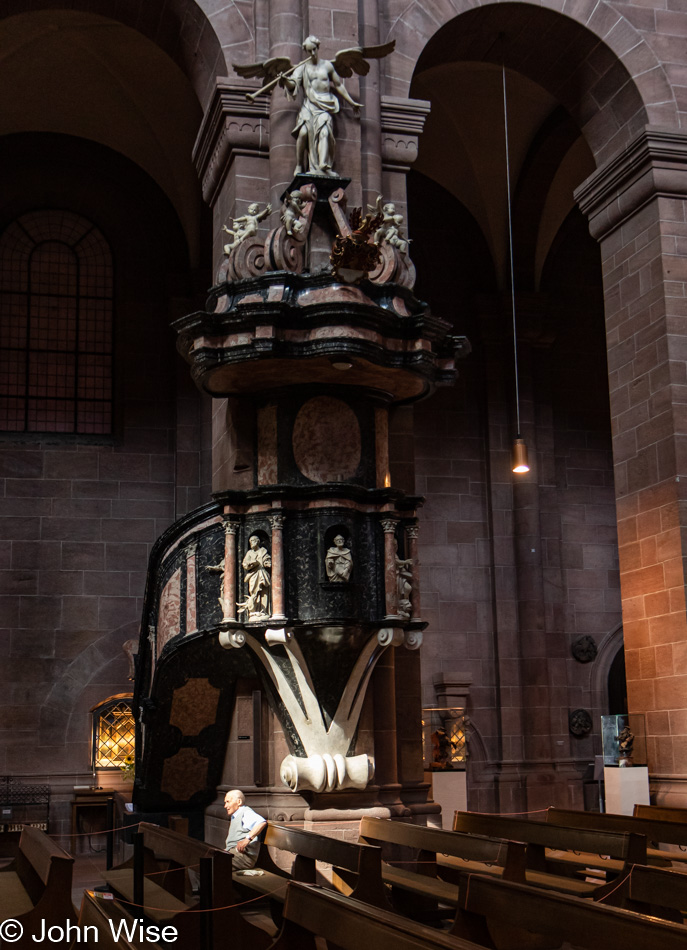
Will we ever again build such public houses where light and shadows, ornate figures, and gilded objects are on display for all to witness? I wouldn’t count on it. Just as Caroline and I have strived to see as many national parks and monuments as we could, and we’ve kept track of them, I wish I’d done the same with cathedrals.
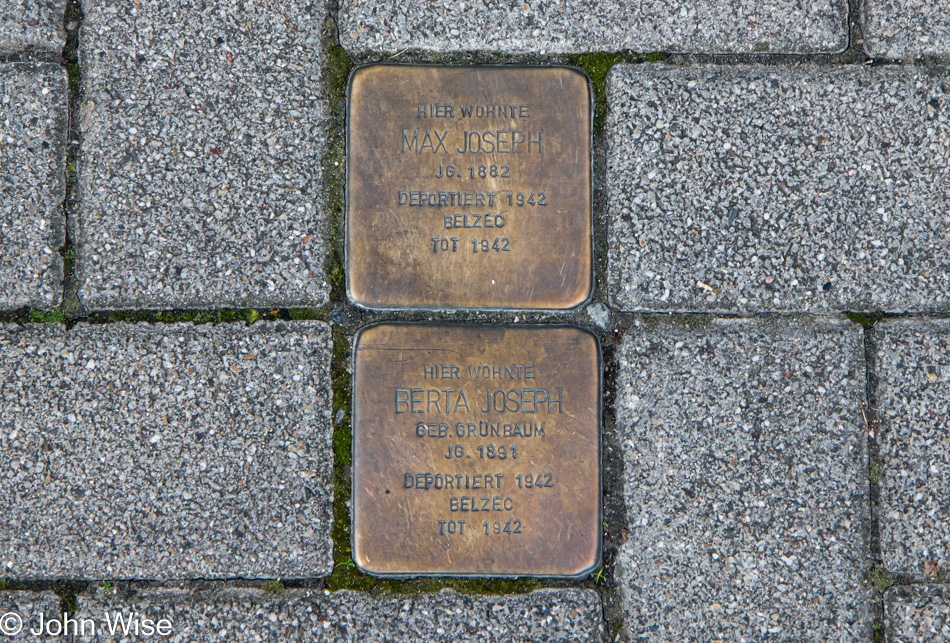
There’s a synagogue nearby, and I’ll not be able to stop in today as I’m now running short on time, but I did come across these stumbling stones that recognize the lives of Berta and Max Joseph, who were deported and murdered in Bełżec concentration camp that was the third most fatal concentration camp after Treblinka and Auschwitz.
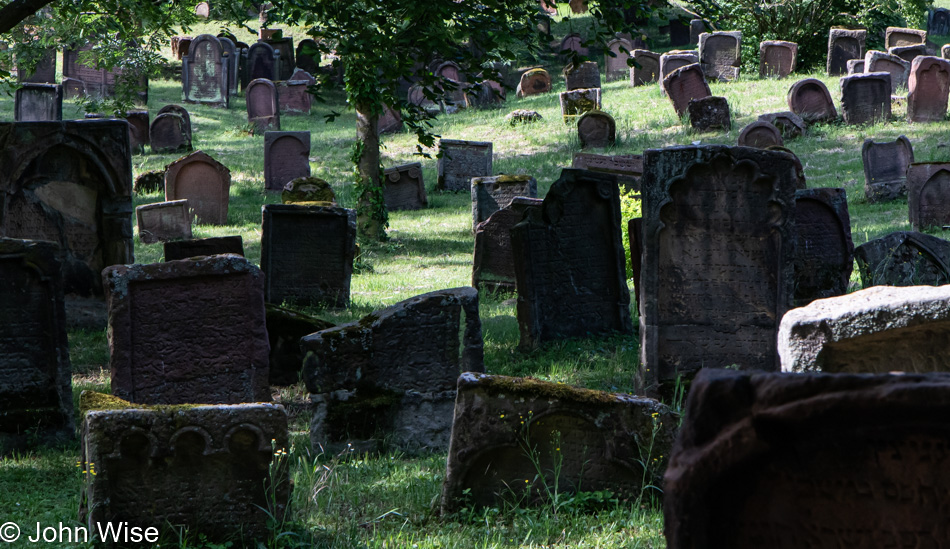
How in the world did the oldest Jewish cemetery in Europe survive World War II? Are the parents of Bertha and Max buried here? Many of the graves have markings in Hebrew, so it was obvious who was interred here but I’m at a loss how this survived and wasn’t wiped off the face of the earth. Walking in, I needed a kipa or hat. I was about to be turned away by a security guy, but then he asked if I had a mask with me, instant kipa in the pocket is now adorning the crown of my head.
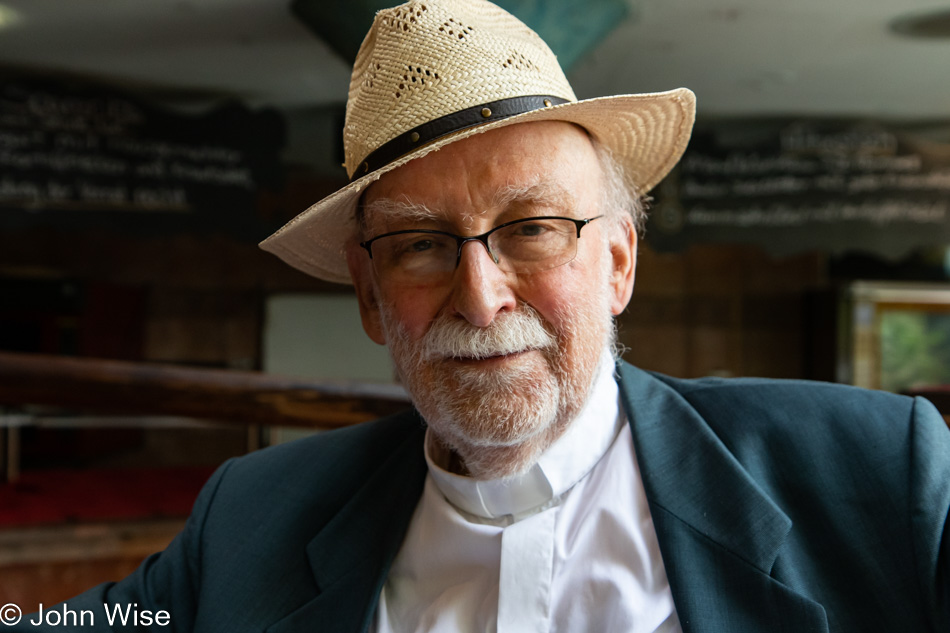
On the train to Karlsruhe with little concentration available. I’m tired, and I’m hungry. Father Hanns was at the platform waiting for my arrival. Out of the main train station, we boarded a bus for a short ride to Europastrasse, where we’d get lunch at the same spot he, Caroline, and I always eat. Over a slow meal, we talked about religion, philosophy, writing, reading, Umberto Eco, Caroline, Stephanie, his granddaughter Katharina, Martin Luther, various evangelical bishops, the community of English-speaking evangelicals in the Baden-Württemberg region, but not a word about Paris.
After lunch, we visited Father Hanns’s home so he could identify a particular book, it was The Mysterious Flame of Queen Loana by Umberto Eco. Hanns is surrounded by books, his home is arranged for the life of books and his place in their universe where he can read and write. In minutes, an hour had passed after the first two-and-a-half had flown by, too. We now had to make haste to a taxi stand so we could race back to the train station. Four hours with my father-in-law wasn’t enough.
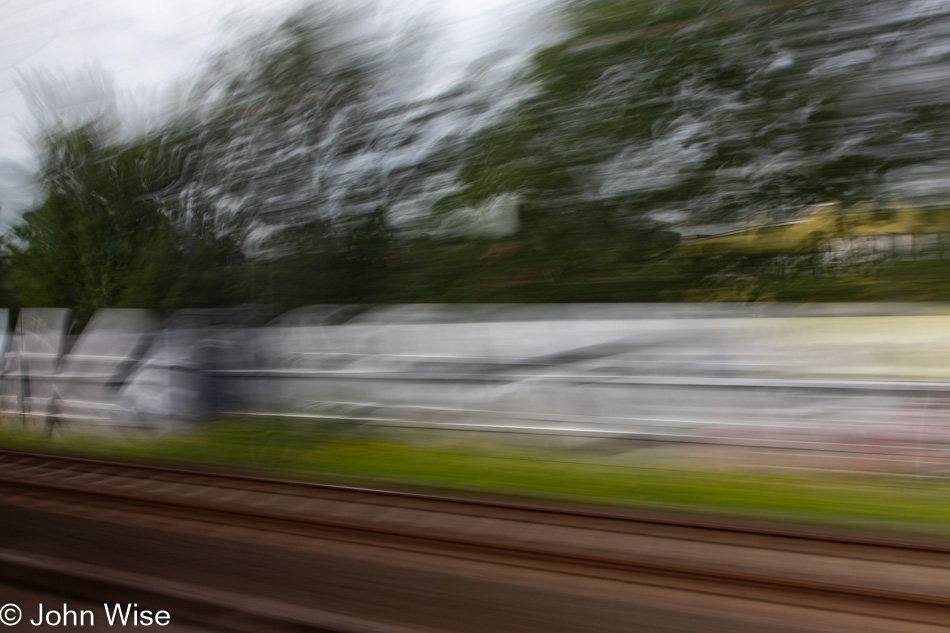
Back on the train not only are we moving fast, I’m moving fast into time with only 17 minutes before we dock in Frankfurt. The problem with this is that I’m too early. Circumstances are such that I have avoided where I’m staying for some hours until later this evening because my insensitive mouth doesn’t always read people well, especially when the other person cannot be read. So, what do I do? Train ride somewhere else on a Sunday, try meeting up with Olaf the last time, or visit Jutta just before her dinner time.
Thirteen minutes to go, and I don’t want to close my computer, nor do I want to read some depressing news. Bandwidth is not so great I would watch videos, but 12 minutes is hardly enough to get into something. Eleven minutes and I have nothing to share, so before I finish this countdown, I’ll save and put things away to prepare for disembarking.
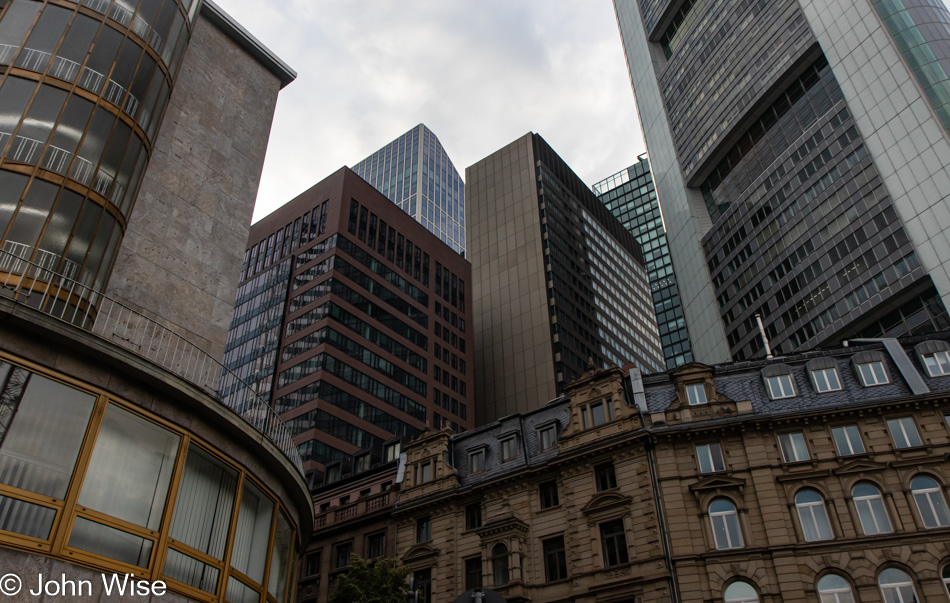
I met with Olaf after arriving in Frankfurt and spent about an hour with him chatting before walking around the corner to Kebab Han for a mixed grill of Turkish meats.
Walked into the city after the rain stopped and wandered around before taking the U6 or U7 to Heerstrasse just because it was too early to head back to Heddernheim. The tension surrounding this departure from Frankfurt is giving me poor feelings. I probably shouldn’t mention this here as I knew this was the potential price of sticking my nose in other people’s business, but those people couldn’t handle the confrontation, and so with me short of time, I had to accelerate things. Now I’m paying for it with this ill will I’m feeling. This is compounded by the fact that I’m tired, I have to pack, and I have delayed things to avoid any further confrontation. What a dumb way to end this visit to Frankfurt, where my objective was to do well by others.
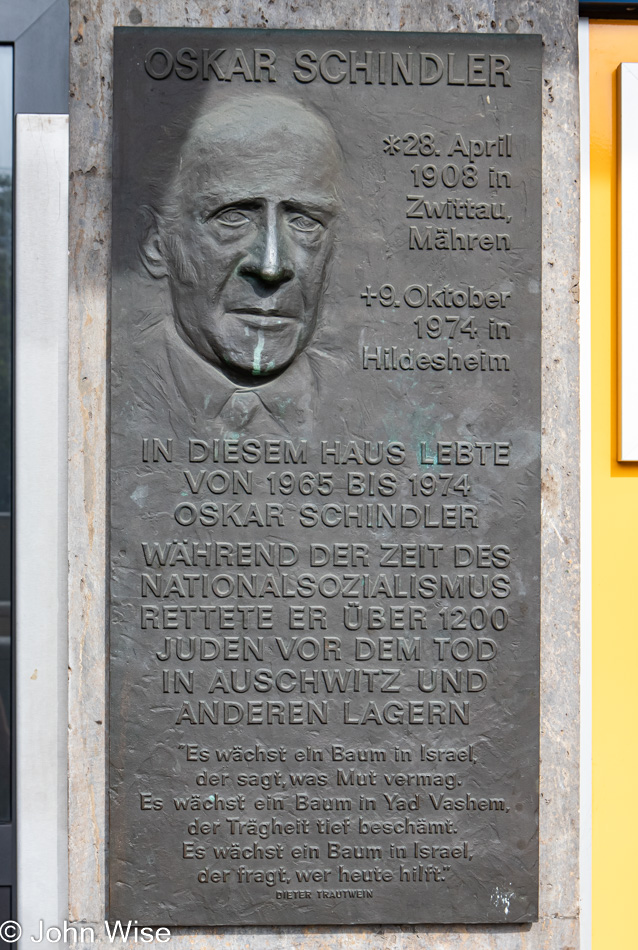
I cannot believe this area near the Hauptbahnhof (Main Train Station) was ever a nice area, but a placard I’d never seen before was on a wall noting that Oskar Schindler lived here for nearly ten years. If I had the time or a better idea of where I’d have found it, I would have gone looking for Horkheimer’s old house on Westendstrasse. Hanns told me about it but didn’t know the house number, so I’ll have to make that pilgrimage another day.
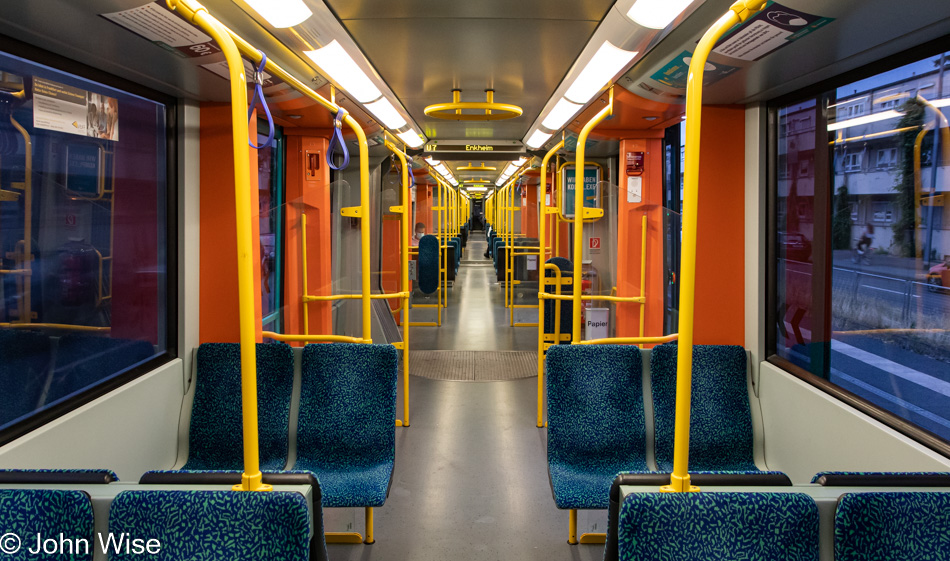
It’s 9:30, and I’m heading from Heerstrasse back to Hauptwache to jump aboard the U1, U3, or U8 to Zeilweg. I’m guessing I’ll be heading to Hauptbahnhof and then the Flughafen between 9:00 and 10:00 tomorrow morning to arrive at least two hours early. I’m flying business class, so I should be able to show up a bit later, but these are COVID times, and I’m still hoping that my rapid antigen test meets the requirements I need to fly to the United States. The worst part of tomorrow I can already taste is the landing in Denver and trying to shove 40,000 pounds of stupid into my eyeballs. I’m expecting there will be a kind of sickness when I start picking up on casual conversations that swerve into the violently aggressive. I know full well that I’ll be hearing grumbling dissatisfaction and the bickering of people tense that they are not in their comfort zone. This is NOT what I’ll be experiencing at the Frankfurt Airport.
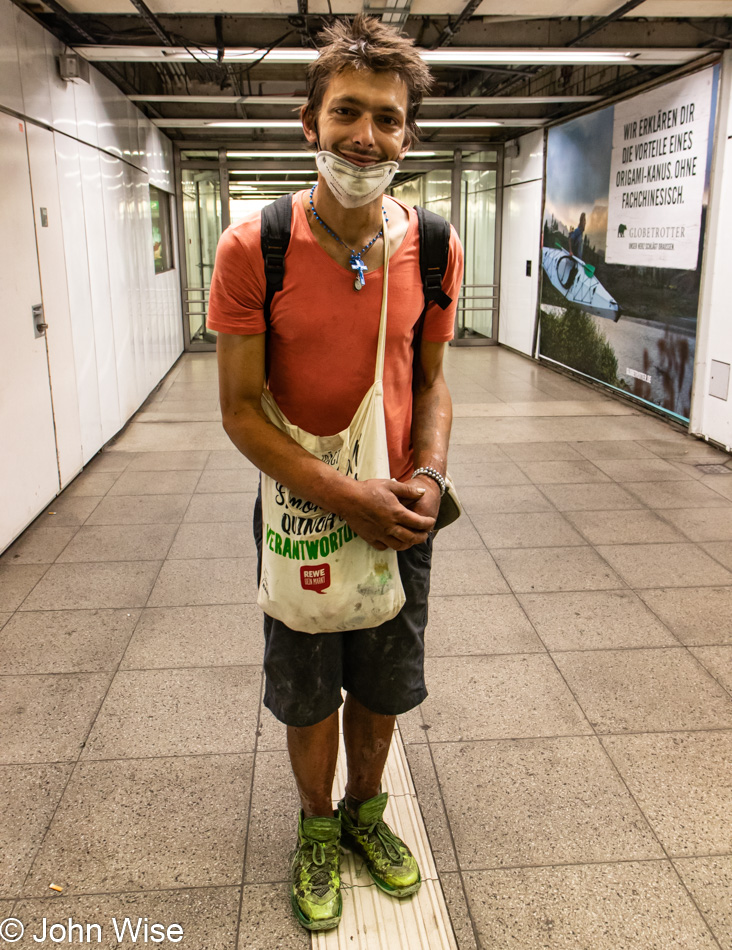
I just transformed my angst into something positive for me and, apparently, the man I helped. This guy was the recipient of 65 Euros tonight. He’s broken and falling apart. Three years in jail in Austria and super hard times have left this man of about 30 years old nearly toothless with swollen hands, horrible scars, and seriously ugly wounds on his legs that suggest he’s rotting away. His verbal enthusiasm was emotionally liberating as he told me that nobody had ever helped him like that. Originally, I’d given him 5 Euros on the train, and after some more minutes of him begging others, I threw him the other 10 Euros. When I left the platform we pulled in on, he was busy digging through the trash, but five minutes later, he was on a lower platform where I was waiting for my next train. I asked him for a photo and could see he was reluctant and I told him it was okay that I don’t take it, we’re cool. He then said, “No, go ahead, you really helped me a lot tonight,” so I handed him the 50 and thought he’d cry. He looked down at it and couldn’t believe what I’d given him; he stood up straight and invited me to take his photo. I nearly cried at this wretched man who hardly remains with the living.